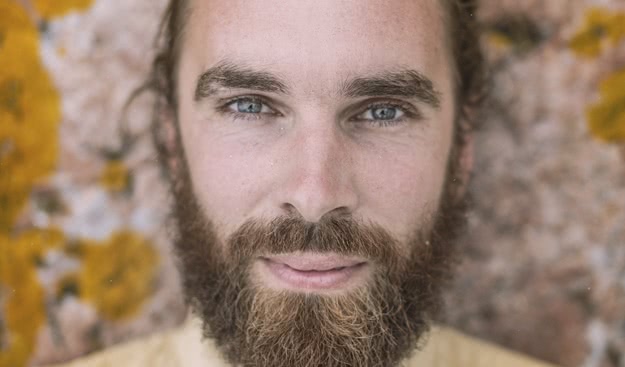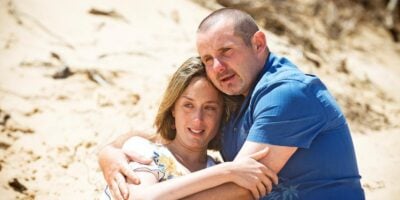Marcus Berg has finally found a cafe with Wi-Fi where he can sit and chat in relative peace (though the dim susurrus of cutlery and table service is constant). He has been a busy man of late. He has only recently touched down in Bali ahead of Markandeya’s Australian tour, which includes an appearance at the Byron Spirit Festival and a date in Sydney. Afterwards, he’ll return to Indonesia for its counterpart, the Bali Spirit Festival, and several other local gigs. Berg has found himself in a fitting environment there; the teachings of the original Markandeya, the Hindu sage, remain very active in Indonesian culture. His own association with the rishi proves equally suited.
“The Markandeya name is actually quite significant here in Bali. Markandeya was the sage who brought the Vedic tradition to Bali, or so they say. For me, it was the name given to me by one of my teachers. It kind of makes sense to have a name that was given this way. At that time I was trying to find the intention, the direction I wanted to take my music. For me, it had to be something meaningful, something aiming for a spiritual way of looking at life. So it was given to me, and yes, he is this mythological, religious character, and so I try to see this as a symbol in life and to navigate by. “I’m also very inspired by [mythologist] Joseph Campbell and the different ways of reading those stories. And that’s one thing that has inspired me to be in Bali. Here, they are very much alive. They’re not just stories, people see the symbolic nature behind those stories and relate to them in daily life.”
Establishing a spiritual communication within music is something that Berg has been drawn to from the earliest days of his artistic journey. While he knew that reggae and ska would be fundamental to his style, it took some time to uncover a sound and essence that was uniquely his own.
“I always knew that I was going to sing, that it would be part of my journey. When I started playing professionally, I went to a man who works with voices in a therapeutic sense. It’s more like making sounds and breathing, connecting with the music. I think in doing that process I had some confidence to develop my own style of singing, which I knew was there but I had to find in a certain way. It had to be different than going through a normal vocal teacher and learning how to sing in a certain style. So I think my focus has always been to find my own unique expression and my own way of relating to the music. It’s an essential part of how I look at it.”
The result is his two-part Mirror Of Words project, of which he is now touring the second. Here, the spiritual base of his music continues to surge. “The core is all about the vibe, the intention. From that you can spring to so many levels of communicating and playing, performing and producing the music. But that spark has to be sincere. I find it’s really important, it has to be authentic. And then you can do whatever music you do, sing however you like. You can sing about world peace or you can sing about your cat, it doesn’t matter. But it has to mean something to you. That’s what affects me when I see certain artists. I see something that is real for them and for the people you are playing to. I’m very receptive towards that.”
One Spirit Tribe takes place atPaddington Uniting Church onSaturday March 14, andMarkandeya’sMirror Of Words: Part Two is out now.


































